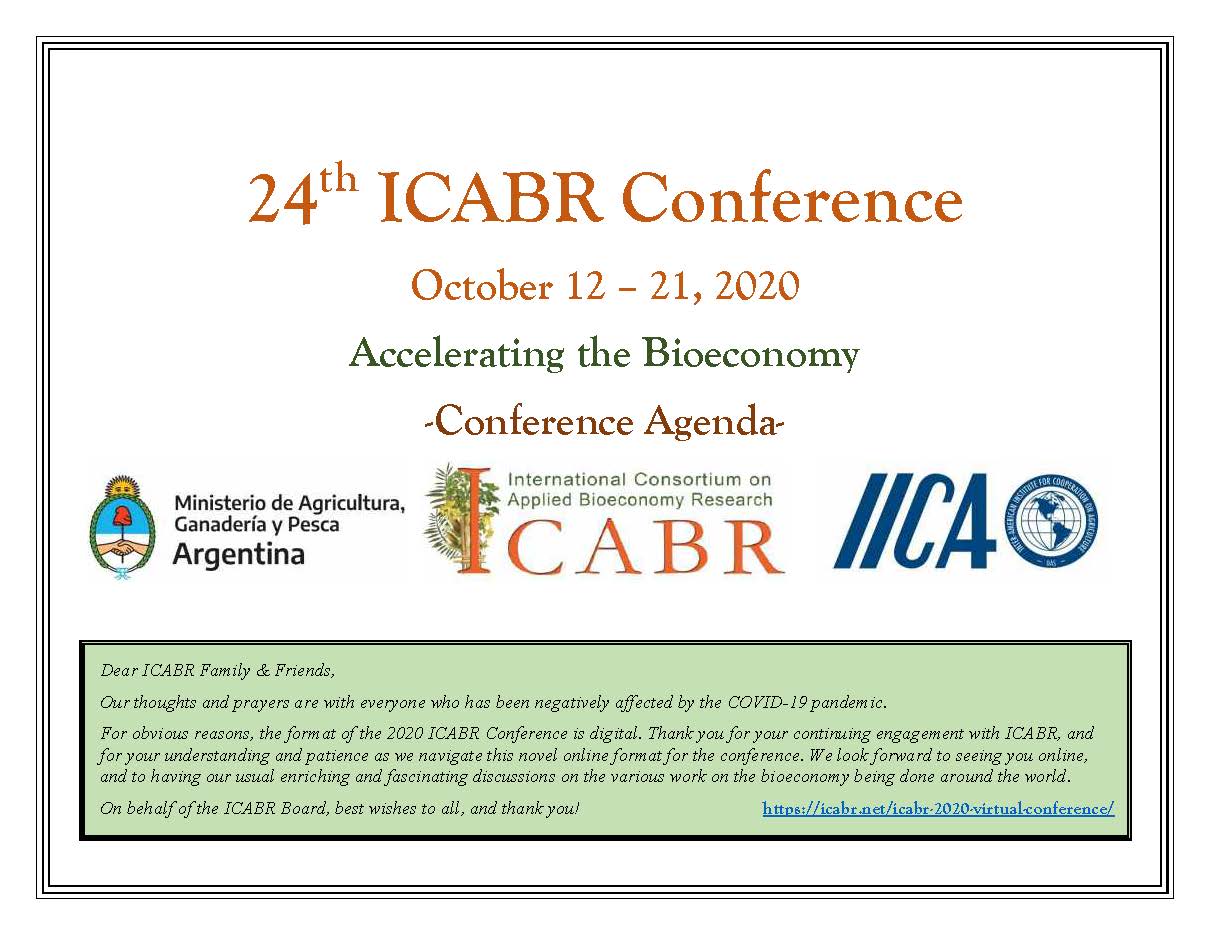Ver ítem
- xmlui.general.dspace_homeCentros e Institutos de InvestigaciónCIEP. Centro de Investigación en Economía y ProspectivaPresentaciones a congresosxmlui.ArtifactBrowser.ItemViewer.trail
- Inicio
- Centros e Institutos de Investigación
- CIEP. Centro de Investigación en Economía y Prospectiva
- Presentaciones a congresos
- Ver ítem
Economic incentives and energy production from forest biomass in Argentina
Resumen
Argentina faces a double challenge: on the one side, to support and strengthen the economic development process with the enlargement and enhancement of the energy matrix; and on the other side, the country adhered to the global trend of stimulating the development of renewable energies. It is there where the potential of non-conventional renewable energy (NCRE) especially stands out, and dendroenergy in particular.
In order to stimulate bioenergy
[ver mas...]
Argentina faces a double challenge: on the one side, to support and strengthen the economic development process with the enlargement and enhancement of the energy matrix; and on the other side, the country adhered to the global trend of stimulating the development of renewable energies. It is there where the potential of non-conventional renewable energy (NCRE) especially stands out, and dendroenergy in particular.
In order to stimulate bioenergy production from ad hoc forest plantations as well as by using forest by-products, it is essential to have a distributed generation regulatory and operational framework, or otherwise to work on a logistic profile that matches supply and demand (industrial and household) for energy, also considering power generation as well as preferrably cogeneration schemes. From a regulatory point of view, Argentina is already on its way towards such a system. The second item implies deeper planning policies, in a longer term.
Even though a dynamic NCRE development has been seen for the past few years, dendroenergy projects in particular are below the identified potential. Drawing mainly on the INTA-FAO-Probiomasa consultancy (FAO, 2020a) precedent, this work discusses the identified areas with the greatest dendroenergy potential, the current institutional and regulatory incentives, and the necessary economic requirements for dendroenergy capacity growth.
[Cerrar]
La Argentina enfrenta un doble desafío: por un lado debe acompañar y fortalecer el proceso de desarrollo económico con el crecimiento de la demanda y la complejización de la matriz energética; y por otro, el país adhirió a la tendencia mundial y se comprometió a favorecer el desarrollo de las energías renovables. Allí, se destaca especialmente el potencial de las no convencionales (ERNC) y, en particular, la dendroenergía.
Para estimular la producción de
[ver mas...]
La Argentina enfrenta un doble desafío: por un lado debe acompañar y fortalecer el proceso de desarrollo económico con el crecimiento de la demanda y la complejización de la matriz energética; y por otro, el país adhirió a la tendencia mundial y se comprometió a favorecer el desarrollo de las energías renovables. Allí, se destaca especialmente el potencial de las no convencionales (ERNC) y, en particular, la dendroenergía.
Para estimular la producción de bioenergía, tanto a partir de implantaciones boscosas ad hoc como mediante la utilización de residuos o subproductos forestales, resulta esencial contar con un régimen normativo y operativo de generación distribuida, o bien un perfil logístico que calce oferta con demanda, tanto industrial como domiciliaria, y tanto en generación eléctrica como preferentemente en esquemas de cogeneración. Desde el punto de vista normativo, la Argentina ya está transitando hacia un sistema acorde. El segundo elemento se inscribe en políticas de planificación más profundas, con un horizonte más largo.
Si bien el desarrollo de ERNC en los últimos años se muestra dinámico, los proyectos de desarrollo dendroenergético en particular están por debajo del potencial identificado. Partiendo del antecedente de la consultoría INTA-FAO-Probiomasa, el presente trabajo expone las zonas con mayor potencial dendroenergético, los incentivos vigentes, y qué condiciones económicas son necesarias para lograr un crecimiento en la capacidad dendroenergética.
[Cerrar]

Autor
Olemberg, Demián Jeremías;
Egolf, Patricia;
Zaderenko, Constantino;
Lupi, Ana Maria;
Fernandez, Roberto;
Casellas, Karina Susana;
Fuente
24 th ICABR conference: Accelerating the Bioeconomy, Córdoba (Argentina). October 12-21, 2020
Fecha
2020-10
Editorial
ICABR
Formato
pdf
Tipo de documento
documento de conferencia
Palabras Claves
Derechos de acceso
Abierto
 Excepto donde se diga explicitamente, este item se publica bajo la siguiente descripción: Creative Commons Attribution-NonCommercial-ShareAlike 2.5 Unported (CC BY-NC-SA 2.5)
Excepto donde se diga explicitamente, este item se publica bajo la siguiente descripción: Creative Commons Attribution-NonCommercial-ShareAlike 2.5 Unported (CC BY-NC-SA 2.5)


